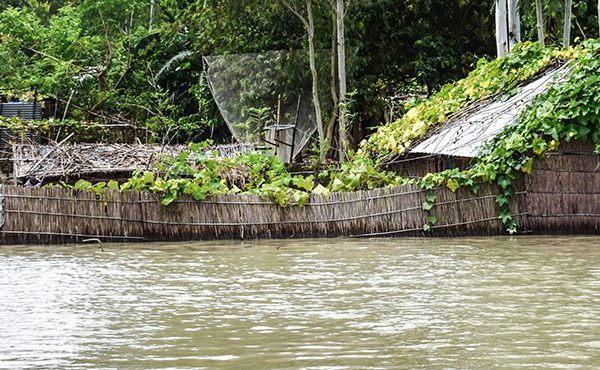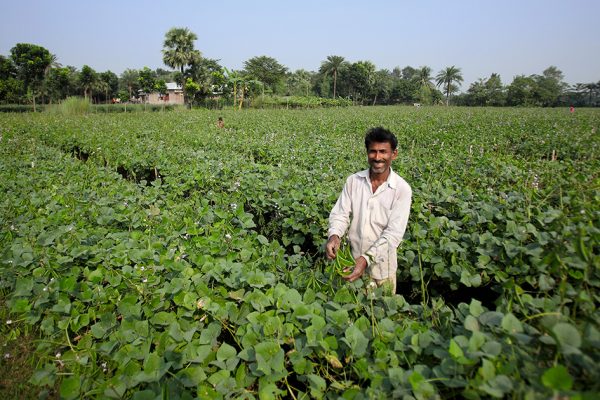One-stop solutions for women in hard-to-reach areas
Reading Time: 2 minutes
Wetland regions are vulnerable to natural calamities throughout the year. BRAC’s integrated development programme provides training to people living in the haor region so that they can be climate-resilient.
Selina Akter lives in a haor (wetland) region in rural Bangladesh. Her house is surrounded by water. On her small plot of dry land, she runs a small nursery and breeds poultry and livestock. She sends her children to school with the profits generated by selling vegetables and dairy products in the local market. Whenever she is not in her garden, she is teaching women around her to grow vegetables. She spends her days with packed schedules, taking joy from everything she does.
Not too long ago Selina’s lived a different reality. There was a time when her husband was the single breadwinner for the seven-member household, and was the family’s sole decision maker. Three meals a day were hard to come by, but Selina was always hopeful of better days.
BRAC’s integrated development programme established a women’s platform in 2013, titled Village Development Organisation (VDO) comprising of 30 members. The VDO was designed with a holistic approach as a one-stop service hub, keeping in mind the comprehensive nature of challenges of people living in haor regions. Selina was selected as an ultra-poor member and was enrolled in the VDO.
She received special care for two years, aimed to enhance her capacities and capabilities to tend to her and her family’s needs. She received training on how to raise livestock and poultry, and received a weekly food allowance. After graduation from ultra-poor status, Selina received an interest-free microloan from the programme.
To ensure access to information in hard-to-reach areas, BRAC’s integrated development programme conducted trainings and raised awareness on gender, human rights, and other legal aid issues for the women living in haors.

Due to the wetland ecosystem, haor regions are vulnerable to multifarious natural calamities. During monsoon, the region is inundated with surface runoff water from rivers and canals and becomes vast stretches of turbulent water known as flash floods, accompanied by wave erosion (called afal by natives). BRAC’s integrated development programme provides training and orientation to people living in the haor region such as Selina on climate-resilient nursery, rice and fish farming conducted by frontline staff and sector specialists.
Selina has been recognised by BRAC for empowering women, as she not only builds their capacity on farming but also employs women on her farmland. Her journey of development started when she received a microloan and training from BRAC, and thus began shaping her own destiny.
For Selina’s unwavering effort to lift her own life and those of others, in November 2019, she received an award from BRAC for her work in engaging and empowering her community.

To know more about BRAC’s lessons from working in the haor regions visit www.brac.net/idp.
Khaleda Akhter Laboni is Manager, Communications and material development, Integrated Development Programme, BRAC.





